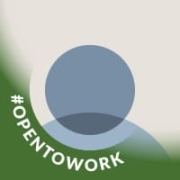

Rally Software and Microsoft Azure DevOps are competitors in the enterprise project management category. Rally is preferred for its reporting and Kanban capabilities, while Azure DevOps leads with its CI/CD pipelines and integration with Microsoft products.
Features: Rally Software provides high predictability with its mature Kanban support, enabling detailed metrics and effective reporting. It simplifies project tracking and decision-making through customizable reports and dashboards. Microsoft Azure DevOps, on the other hand, excels in its seamless integration with the Microsoft ecosystem. It offers robust CI/CD pipelines, comprehensive DevOps functionalities, and agile project management through Azure Boards.
Room for Improvement: Rally Software needs enhancements in performance and Kanban features, alongside better integration capabilities and a refined defect management cycle. Users point out its reporting features as outdated. Azure DevOps users seek improvements in test management and third-party integrations. Difficult navigation of updates and the user interface also require attention.
Ease of Deployment and Customer Service: Both Rally Software and Azure DevOps offer flexible deployment options, including on-premises, public cloud, and hybrid solutions, meeting diverse enterprise needs. Rally provides responsive technical support but may struggle with complex resolutions. Azure DevOps stands out for its smooth deployment process, though integrating with non-Microsoft environments might be challenging for some users.
Pricing and ROI: Rally Software is seen as expensive in comparison to alternatives like Jira, yet its implementation value justifies the cost with improved efficiency for scaled agile processes. Azure DevOps, with its competitive pricing model, appeals as a cost-effective solution, offering scalable licensing suitable for various enterprise sizes, often perceived as more budget-friendly than Jira.
On a scale of one to ten, where ten is the best, I would say ROI is an eight.
Resolving issues took time since understanding our unique problems was not always straightforward for support teams.
The scalability has left me pleased, not just for our teams in Europe, the Middle East, and Asia, but as we expanded into North America, Africa, and even Australia.
The solution is stable, and we did not encounter any stability issues.
Those processes are a bit difficult for some customers who may not have technical knowledge and don't go through the entire documentation.
Enhanced system guidance highlighting best practices would be beneficial, especially if experienced personnel are not available for support.
They don't even provide a POC where you can have a sandbox or stuff that you can go through and see how exactly it's costing.
I find it to be expensive.
Our company organized a training session with a certified Azure expert, which was extremely beneficial for adopting best practices during the initial three months.
I can't approve my own request and move the code around without a review.


Microsoft Azure DevOps is a cloud service that enables developers to collaborate on code development projects and create and deploy applications quicker than ever before. The service helps unite developers, project managers, and software development experts through a collaborative experience while using the application. For the users' convenience, Azure DevOps offers the user cloud services through Azure DevOps Services or an on-premises service using Azure DevOps Server. In addition, it supports integration with additional services and adding extensions, including the ability for the user to create their own custom extensions.
Azure DevOps provides a variety of unified features that can be accessed through their web browser or IDE client, such as:
Benefits of Microsoft Azure DevOps
Microsoft Azure DevOps offers many benefits, including:
Reviews from Real Users
Microsoft Azure DevOps stands out among its competitors for a variety of reasons. Two major ones are its ability to forecast how long each task will take and the ability for users to follow the entire development process.
PeerSpot viewers note the effectiveness of this solution. An executive chief operating officer for a cloud provider notes, “We can forecast tasks and the number of hours a task will take and can compare it with how long a task actually takes.”
Carlos H., a product and system director at SPCM, writes, “I think the most usable thing is that you can follow the whole progress of the development process. This makes it very useful for us.”
With Rally Software, you can plan, prioritize, manage, track, and continuously improve your work so that you can deliver the value that your customers need with speed, quality, and efficiency. Our enterprise-class Application Lifecycle Management (ALM) SaaS platform provides visibility into progress, roadblocks, and dependencies across multiple teams, projects, and programs. This allows you to align to your strategic goals and create better business results, and to do it all in a single system of record.
We monitor all Application Lifecycle Management (ALM) Suites reviews to prevent fraudulent reviews and keep review quality high. We do not post reviews by company employees or direct competitors. We validate each review for authenticity via cross-reference with LinkedIn, and personal follow-up with the reviewer when necessary.